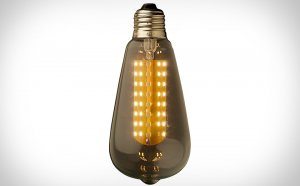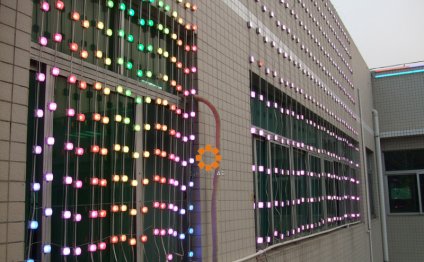
LED Light screen
 There's nothing even worse than not-being capable fall asleep through the night. You toss and change, fluffing one pillow and then another. Covers on, blankets down. Window open, screen closed. Nothing is apparently right. Thoughts concerning the past time plus the impending dawn tumble using your mind, swirling around, appearing, flitting away - teasing you and flirting together with your subconscious.
There's nothing even worse than not-being capable fall asleep through the night. You toss and change, fluffing one pillow and then another. Covers on, blankets down. Window open, screen closed. Nothing is apparently right. Thoughts concerning the past time plus the impending dawn tumble using your mind, swirling around, appearing, flitting away - teasing you and flirting together with your subconscious.
Exasperated, you give on rest and open your laptop computer to check on Facebook, or pull-up the latest round of Candy Crush on your phone, hoping the mind-numbing scrolling will eventually hypnotize you into sleep.
Exactly what if these LED displays are exactly what's maintaining you awake?
Several articles have actually reported regarding the effects of Light-emitting Diode backlit screens and their emission of a particular blue-light wavelength on melatonin levels, an important hormones that makes you drowsy and kicks inside sleep period. Melatonin is introduced normally within start of darkness, planning yourself for sleep, then continually through the entire night in your natural circadian rhythm - your own body's daily biological time clock. However, melatonin is partially curbed by exposure to light, together with unusually bright glow of backlit computer screens seems to be specially disruptive to its launch. Suppression of melatonin after that gets the opposing results, increasing awareness and arousal, and also altering REM sleep habits once you finally do nod off.
To check this trend, scientists assessed melatonin levels in college students after having them sit-in front of either a Light-emitting Diode backlit or non-LED computer screen during the night for many hours (1). Although melatonin performed increase obviously throughout the test throughout participants, it rose never as steeply with a delay in those confronted with the LED screens. EEG tracks of mind activity inside frontal cortex indicating slow-wave sleep habits had been in addition repressed in LED-viewing participants. Curiously however, self-reports of sleepiness increased for the night in both groups (not surprising), but didn't differ amongst the two display groups. Therefore, even though the LED team had lower melatonin levels, showing they may have more difficulty dropping off to sleep, they did not feel any more awake. But researchers additionally had members finish a series of interest and memory jobs during study on the particular computers, where the Light-emitting Diode team performed considerably better, apparently reflecting their increased awareness and arousal, despite maybe not objectively experiencing it.
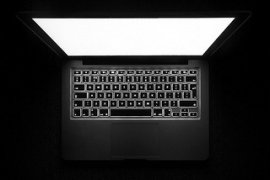 In a similar research, a different number of scientists sat students down facing a LED display from the hours of 11pm-1am (perhaps not too strange an incident), but this time around additionally they furnished them with specific goggles that either ramped up or down the amount of blue light they received (2). Melatonin levels had been paid down by nearly 50per cent when you look at the blue goggle problem, which amplified the goal blue-light wavelength, but had been down just 7percent when you look at the pure Light-emitting Diode condition after two hours of publicity, and never whatsoever after 60 minutes. Hence, it appears the brightness regarding the light and the period of time invested staring at it substantially impacts the impact on melatonin amounts.
In a similar research, a different number of scientists sat students down facing a LED display from the hours of 11pm-1am (perhaps not too strange an incident), but this time around additionally they furnished them with specific goggles that either ramped up or down the amount of blue light they received (2). Melatonin levels had been paid down by nearly 50per cent when you look at the blue goggle problem, which amplified the goal blue-light wavelength, but had been down just 7percent when you look at the pure Light-emitting Diode condition after two hours of publicity, and never whatsoever after 60 minutes. Hence, it appears the brightness regarding the light and the period of time invested staring at it substantially impacts the impact on melatonin amounts.
But maybe it's not the display you're looking at itself; perhaps it is what is from the screen this is the problem. A number of research reports have reported an increase in tension amounts induced by late-night texting, that may trigger insomnia and disrupt sleep patterns. A preliminary study from University of Texas Pan-American reported higher tension levels and poorer sleep in pupils whom texted or moved on the web within a couple of hours before you go to bed. Another report claimed comparable findings when it stumbled on active display actions, like mailing or playing videos online game, but no difficulties in people who just watched a movie on the laptop computers. Thus, the difficulty may be even more for this variety of activity you use your computer for, with energetic display behaviors causing higher arousal rates before bed.
Either way, about your night-time program, you might do better with the age-old adage of reading a dull book or counting sheep that will help you get to sleep as opposed to examining your mail one last time.
Cajochen C. et al. Evening contact with a light-emitting diodes (LED)-backlit computer screen affects circadian physiology and cognitive performance. Journal of used Physiology 110, 1432-1438 (2011).
Wood B. Light amount and extent of exposure determine the impact of self-luminous tablets on melatonin suppression. Used Ergonomics 44, 237-240 (2012).
RELATED VIDEO
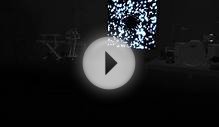
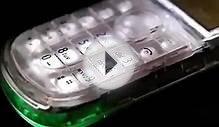
Share this Post
Related posts
LED light Specs
summary of various Light-emitting Diode specifications and LED variables present LED datasheets. When choosing LEDs for…
Read MoreLED light Globes
Energy Saving Boats to Canada Design by Smart & Green. Cordless, rechargeable, waterproof, and sturdy, the energy…
Read More

